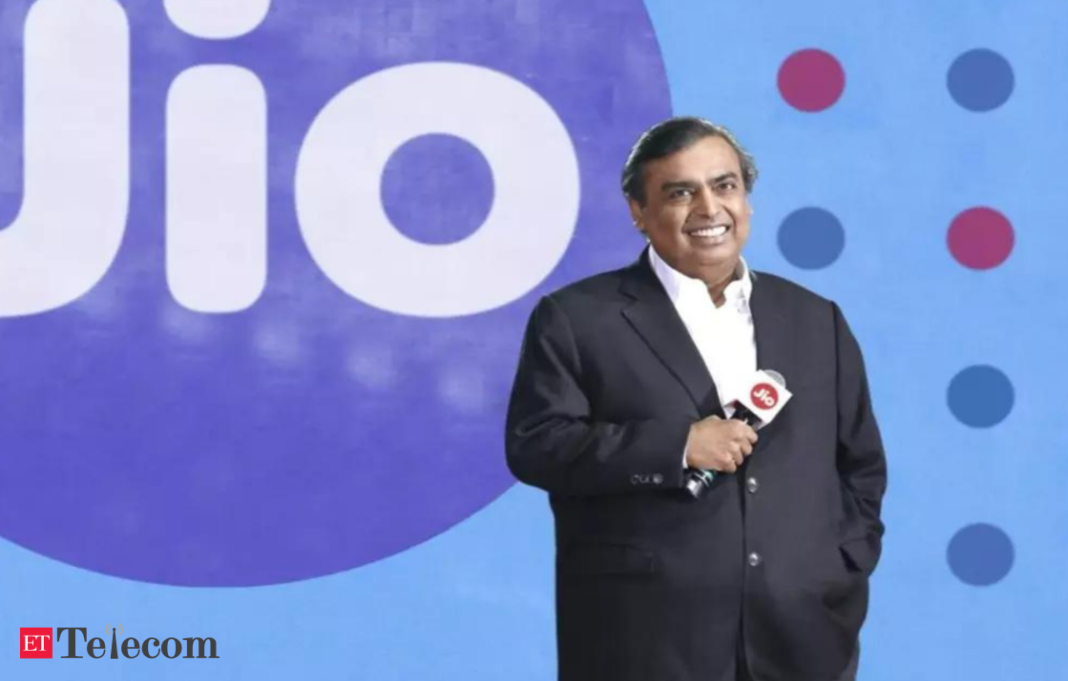In Short:
Mukesh Ambani’s Reliance argues that India should auction satellite broadband spectrum rather than allocate it administratively, opposing Elon Musk’s Starlink and Amazon’s Project Kuiper. The telecom regulator, TRAI, is reviewing this issue, with Reliance claiming TRAI’s conclusions lack legal basis. The debate affects the growing satellite broadband market, projected to reach $1.9 billion by 2030.
By Aditya Kalra and Aditi Shah
NEW DELHI: The billionaire Mukesh Ambani-led Reliance has raised concerns regarding the telecom regulator’s conclusion that the allocation of home satellite broadband spectrum should be managed by the government rather than through an auction. This stance escalates the ongoing competition with Elon Musk’s Starlink.
Controversy over Spectrum Allocation
The debate surrounding the allocation of spectrum for satellite services in India has been contentious since last year. Starlink and other global players, such as Amazon’s Project Kuiper, advocate for an administrative allocation method. In contrast, Ambani, Asia’s wealthiest individual and head of Reliance Jio, argues in favor of conducting an auction.
Currently, the dispute revolves around the interpretation of Indian laws, with some industry stakeholders suggesting these laws facilitated the spectrum allocation sought by Musk. However, Reliance contends that there are no regulatory provisions for satellite broadband services aimed at individual or home users, as indicated by industry sources last Sunday.
TRAI Consultation and Reliance’s Response
The Telecom Regulatory Authority of India (TRAI) is engaged in a public consultation process. Yet, Reliance has challenged the TRAI’s direction in a letter dated October 10, requesting a reevaluation of what it perceives as a “pre-emptive interpretation” favoring spectrum allocation over auctioning.
“TRAI seems to have concluded, without any basis, that spectrum assignment should be administrative,” stated Reliance’s senior regulatory affairs official Kapoor Singh Guliani in his correspondence with India’s telecoms minister, Jyotiraditya Scindia. In the letter, not made public, Reliance noted that TRAI’s consultation paper indicated that Indian laws required administrative allocation without conducting any supporting studies.
Responses and Implications
As of now, both Reliance and the telecom ministry have not commented publicly on these developments. A senior TRAI official remarked that due diligence is being exercised, affirming that Reliance is welcome to present feedback during the ongoing consultation period.
The recommendations from TRAI will serve as a crucial foundation for the government’s final decision on spectrum allocation.
A report by Deloitte anticipates that India’s satellite broadband service market will experience a remarkable growth rate of 36% annually, reaching a value of $1.9 billion by 2030. Meanwhile, Musk has expressed a strong interest in launching Starlink in India, although the ultimate resolution on spectrum allocation remains a critical hurdle.
Starlink asserts that an administrative allotment of licenses is consistent with global practices. Conversely, Reliance emphasizes that an auction is essential to create a level playing field, as foreign entities could potentially provide voice and data services, thereby competing with established players. Notably, Reliance Jio stands as India’s leading telecom operator with 480 million subscribers.





